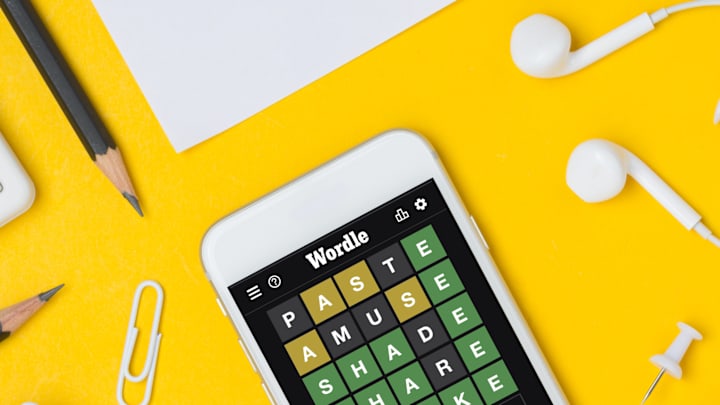If you want to become the best Wordler the world has ever seen, there are plenty of ways to improve your performance. You can experiment with strategic opening words, or study old Wordle puzzles like an AP student armed with practice exams. You can even learn about phonotactics to help you rule out unlikely letter pairings.
Or, you can just spend some time with WordleBot—a new AI tool hosted by The New York Times that compares every guess in your finished Wordle puzzle to its own, providing analysis about what you could’ve changed to land on the answer faster. It was developed by Josh Katz, a statistician and New York Times graphics editor, and Matthew Conlen, a data journalist and human-computer interaction researcher.
As long as you access WordleBot from the same cookies-enabled browser that you use for Wordle, it’ll pull your last puzzle automatically. But you can also upload a screenshot of any Wordle grid if you’d like to see data on that, instead.
WordleBot grades each of your guesses on a 99-point scale in two different categories—skill and luck—and then shows you all the more efficient words it would’ve chosen. You can even see breakdowns that reveal how well a guess cuts down your remaining possible solutions. (WordleBot can help you improve your game in hard mode, too, though the feedback will be a little different.)
More Articles About Wordle:
The tool also assigns grades for skill and luck based on your entire grid, which you can compare to the averages for all Wordle players. In this way, as the creators explained, WordleBot “may serve as a tiebreaker of sorts for those of you involved in competitive text chains with friends and family. If a Wordle took you five turns but you answered more efficiently than your friends, WordleBot may provide some bragging rights. If you did everything right and were simply unlucky, it will tell you that too.”
It’s not impossible to best WordleBot in any given puzzle, as it can’t account for luck any better than we can. But it is working at an advantage when it comes to efficiency. Wordle creator Josh Wardle only included 2309 possible solutions when he built the game, and WordleBot knows them all. While it does make guesses outside of those—the full list is around 4500—it’s better equipped to calculate “the precise optimal path to take from a given guess” than most recreational Wordle players are.
Explore WordleBot for yourself here.
[h/t The New York Times]
